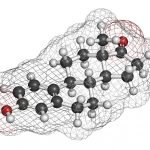Cognitive Training Reduces Freezing of Gait in Parkinson’s
Node Smith, ND
An interesting study this past week showed that mental training may have significant benefit in reducing both the severity and duration of freezing of gait (FoG), a common symptom of Parkinson’s Disease (PD).1 The cognitive training in the research study was also seen to improve cognitive processing speed and counter fatigue.
Freezing of gait (FoG)
FoG is a common symptom of PD that is described as suddenly becoming stuck when walking, and no longer being able to move forward. It can feel like being glued to the floor and is recognized as a prominent contributor to falls and low quality of life for PD individuals.
Link between FoG and elements of cognitive control and attention
Previous research has shown a link between FoG and elements of cognitive control as well as attention. These links have been noted through neuroimaging, which has shown dysfunction in the fronto-parietal and fronto-striatal areas of the brain.
FoG study
This study concentrated on patients with PD, who experienced self-reported FoG, and were not affected by dementia. They were randomly placed into either a cognitive training program or an active control. 20 total participants were included in the cognitive training group and 18 in the active control group. Both groups were facilitated two times per week by a physician, and the primary outcome measurement was the amount of time spent frozen during a timed task involving movement task. Assessment was conducted both on and off dopaminergic drugs. Secondary outcomes included various quality of life measures such as mood, well-being and sleep quality.
Patients in the cognitive training group
Patients in the cognitive training group experienced a significant drop in their FoG severity while on dopaminergic medications compared to controls. These individuals also had increased mental processing speed and reduced fatigue when on their dopaminergic medications.
Noteworthy and Interesting find
Interestingly, and of note, there was no difference between groups when test participants were assessed off of dopaminergic medications. All participants were regularly taking these medications.
Researchers hopeful about study
The researchers are very hopeful about this study, and comment that “The feedback we’ve had from participants and family members involved in this study was overwhelmingly positive. The results of this pilot study highlight positive trends, and the importance of nonpharmacological trials involving cognitive training has become increasingly clear.”
Source:
- Lewis SJ. Disease-modifying approaches for Parkinson disease. Med J Aust. 2018;208(9):377-378.
Image Copyright: <a href=’https://www.123rf.com/profile_jovanmandic’>jovanmandic / 123RF Stock Photo</a>
 Node Smith, ND, is a naturopathic physician in Portland, OR and associate editor for NDNR. He has been instrumental in maintaining a firm connection to the philosophy and heritage of naturopathic medicine among the next generation of docs. He helped found the first multi-generational experiential retreat, which brings elders, alumni, and students together for a weekend camp-out where naturopathic medicine and medical philosophy are experienced in nature. Four years ago he helped found the non-profit, Association for Naturopathic ReVitalization (ANR), for which he serves as the board chairman. ANR has a mission to inspire health practitioners to embody the naturopathic principles through experiential education. Node also has a firm belief that the next era of naturopathic medicine will see a resurgence of in-patient facilities which use fasting, earthing, hydrotherapy and homeopathy to bring people back from chronic diseases of modern living; he is involved in numerous conversations and projects to bring about this vision.
Node Smith, ND, is a naturopathic physician in Portland, OR and associate editor for NDNR. He has been instrumental in maintaining a firm connection to the philosophy and heritage of naturopathic medicine among the next generation of docs. He helped found the first multi-generational experiential retreat, which brings elders, alumni, and students together for a weekend camp-out where naturopathic medicine and medical philosophy are experienced in nature. Four years ago he helped found the non-profit, Association for Naturopathic ReVitalization (ANR), for which he serves as the board chairman. ANR has a mission to inspire health practitioners to embody the naturopathic principles through experiential education. Node also has a firm belief that the next era of naturopathic medicine will see a resurgence of in-patient facilities which use fasting, earthing, hydrotherapy and homeopathy to bring people back from chronic diseases of modern living; he is involved in numerous conversations and projects to bring about this vision.









